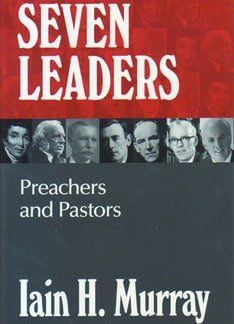The author is convinced that important lessons may be learned from ministers of bygone ages. He presents role models for aspiring ministers to follow, men whose example serves to both challenge and encourage.
Seasoned pastors will also benefit from reading this. If we are not careful, pastors can drift into going through the motions of ministry rather than it being the overflow of deep communion with God. These pages help provide a necessary corrective. Readers who are not called to preach or pastor will, nonetheless, find their souls stirred by Murray’s accounts of seven exceptional gospel ministers.
Attention is given to: John Elias, Andrew A. Bonar, Archibald Brown, Kenneth A. MacRae, D. Martyn Lloyd-Jones, W. J. Grier and John MacArthur. Rather than provide potted biographies of these varied characters, Murray attempts to show what made them tick; they are diverse individuals, called to serve the Lord at different times and in different situations; some with more academic training than others, but all wonderfully used by the Lord to accomplish great things.
That said, these ‘magnificent seven’ had a number of things in common that helps account for their usefulness. They were all strongly Calvinistic, some at a time when Reformed doctrine was unfashionable. They all stood for the sovereign grace of God, convinced that the great truths of Calvinism were thoroughly biblical. Murray shows that they endeavoured to make their content-rich sermons as clear, logical and easy to follow as possible. Helpful instances are given as to how they did that.
The importance of prayer in ministry is highlighted in the chapter on Andrew A. Bonar. Readers will be humbled and challenged to yearn for a closer walk with God through his example. There is a need today for the empowering presence of the Spirit in our preaching. All the preachers described here were men who longed and prayed for the Spirit’s work upon their preaching and in the lives of their hearers. God alone is able to give preaching its life-transforming effectiveness.
Luther once wrote: ‘It is not by reading, writing or speculation that one becomes a theologian. Nay, rather, it is living, dying and being damned that makes one a theologian’. The same may be said of pastors. Murray shows that the Lord made these men tender-hearted shepherds of the flock by bringing suffering and trials into their lives. This is especially clear in the chapter on Spurgeon’s friend, Archibald Brown.
This book is a standing reminder of this vital fact: ‘What a preacher is as a Christian is of greater consequence than his natural gifts. In the words of M’Cheyne: “It is not great talents that God blesses so much as great likeness to Jesus. A holy minister is an awful weapon in the hand of God”’ (p.61).
Guy Davies
Westbury








